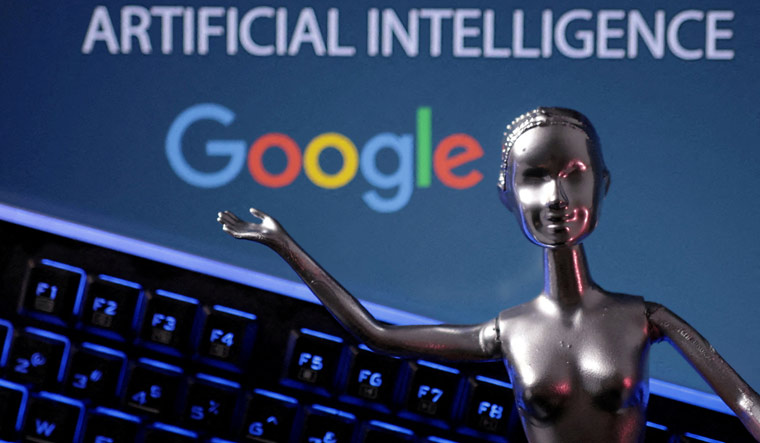Alphabet Inc-owned Google has joined hands with Election Commission of India (ECI) to prevent spread of false information, promote authorised content and label AI-generated data during the upcoming general elections.
Google India in a blog post on Tuesday said its product features are designed to elevate authoritative information on various election-related topics.
We are collaborating with ECI to enable people to easily discover critical voting information on Google Search—such as how to register and how to vote—in both English and Hindi, Google said.
With more people using artificial intelligence to create content, Google said it is setting up processes to help audiences identify AI-generated content.
As more advertisers leverage the power and opportunity of AI, we want to make sure we continue to provide people with greater transparency and the information they need to make informed decisions. Our ads policies already prohibit the use of manipulated media to mislead people, like deepfakes or doctored content, it said.
Google has already started displaying labels for content created with YouTube generative AI features, like Dream Screen.
Soon, YouTube will begin to require creators to disclose when they have created realistic altered or synthetic content, and will display a label that indicates for people when they're watching this content, it said.
he blog post further said the company has begun to roll out restrictions on the types of election-related queries for which Gemini will return responses.
It said for news and information related to the election, YouTube's recommendation system prominently surfaces content from authoritative sources on the YouTube homepage, in search results, and highlights high-quality content from authoritative news sources.
The popular search engine said they have set policies around demonstrably false claims in areas like manipulated content, incitement to violence, hate speech, and harassment, that could undermine democratic processes.
We rely on a combination of human reviewers and machine learning to identify and remove content that violates our policies. Our AI models are enhancing our abuse-fighting efforts, while a dedicated team of local experts across all major Indian languages are working 24X7 to provide relevant context, the blog post said.
Google has set strict policies and restrictions around who can run election-related advertising on its platforms. These include identity verification, certification and authorisation by the ECI, and financier disclosures.
"We take our responsibility for providing high-quality information for these types of queries seriously, and are continuously working to improve our protections," the blog post said.
Google said it has recently joined the Coalition for Content Provenance and Authenticity (C2PA), and pledged to help prevent deceptive AI-generated imagery, audio or video content from interfering with this year's global elections.
Earlier, Google had introduced the Google News Initiative Training Network and the Fact Check Explorer tool to enable newsrooms and journalists deliver reliable, fact-checked updates to debunk misinformation.
Additionally, Google is supporting Shakti, India Election Fact-Checking Collective, which is a consortium of news publishers and fact-checkers in India working together to aid the early detection of online misinformation, including deepfakes, and to create a common repository that news publishers can use to tackle the challenges of misinformation at scale.
Google is committed to working with government, industry, and civil society and surface and connect voters to authoritative and helpful information online, the blog post said.



